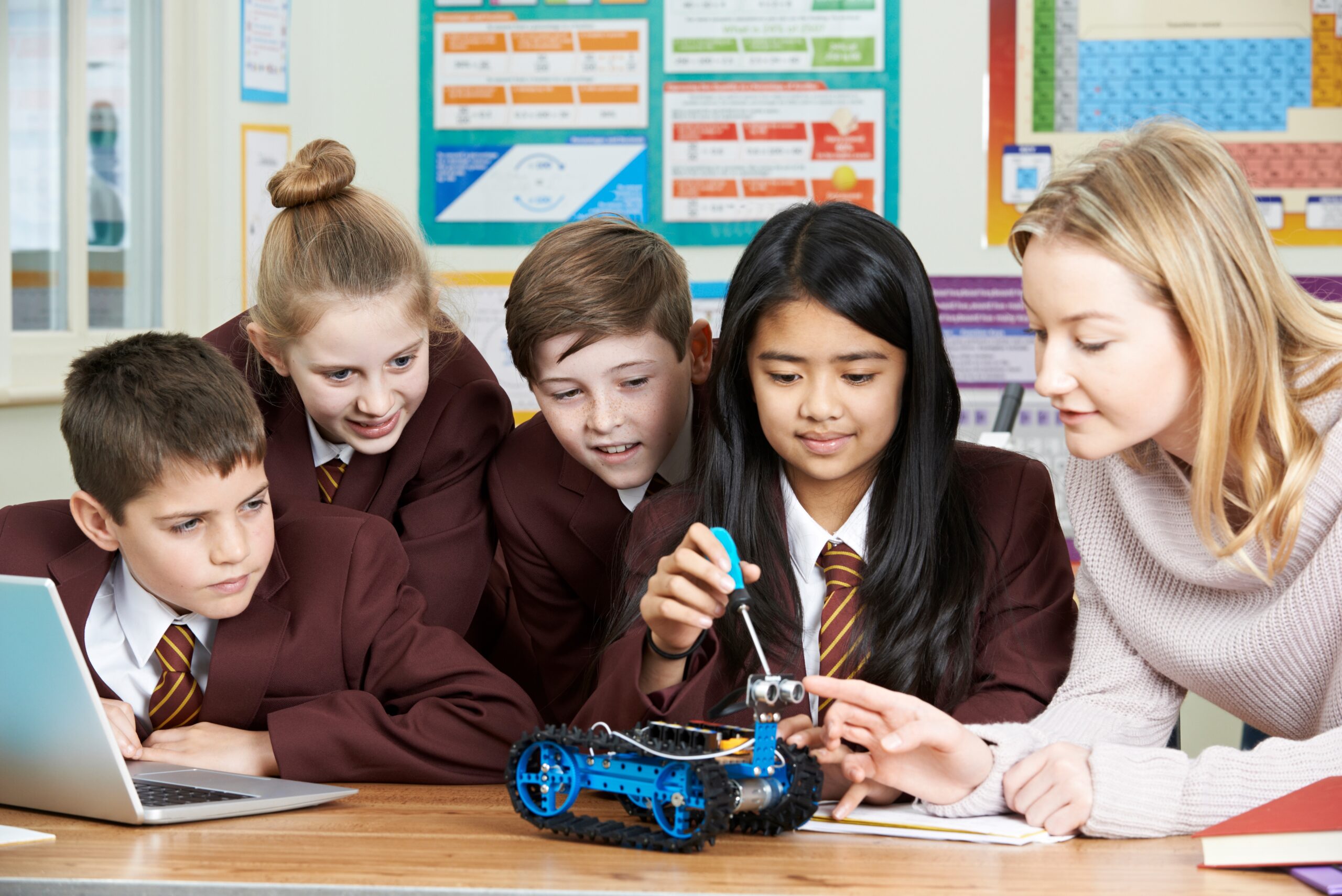
Moving from primary to secondary school can be a daunting time for both parents and children. Talking through the issues and concerns with your child can build their confidence and give them support in coping with the worries they may be experiencing.
Many parents/carers feel anxious when their child starts school, but try not to let it show. Remember that schools work really hard to help your child settle in. You may feel conflicting emotions: proud that your child is growing up and at the same time sad that their primary school days are over, this is perfectly normal.
In the beginning they might worry about practical things, like getting lost and having to cope with a locker. This should go in a few days, as they learn the new routine and layout of the school, explain that this will get easier as they become more familiar.
They may also worry about the work, or making new friends. Discuss their fears and give reassurances, the work will get easier as they understand it more and that new friendships may take a little time to develop.
How is your child feeling? Rather than saying “there’s nothing to worry about”, it’s more helpful to tell your child that feeling nervous is natural, and that everyone gets nervous when facing new situations.
Remember to communicate with your child and discuss their concerns openly, meal times can be a good place to discuss what has happened during the day and find out how they are feeling in a relaxed way, remember be interested not pushy.
Moving on to Secondary School
This information has been produced to help you and your child with the move to secondary school. Starting secondary school can be a big step for your child and may be an anxious time for both child and parent/carer.
Your child will be moving from being the oldest in school to the youngest and may be moving with friends and classmates from primary school or may not know anyone in their new school. For all children, there will be a lot to take in and to learn, particularly in the first few weeks.
There are lots of ways to help and support your child as they settle into Year 7 and throughout their time at school. You do not need to be an expert in what your child is learning – being interested is the first and most important step. Parents/Carers may find that the teenage years can be turbulent as young people find their own identity.
My moving up to secondary school booklet
Our booklet will support the move to secondary school for year 6 children (and their parents/carers). This includes a checklist to help you prepare, a useful and fun activity and some helpful tips. We recommend children and their parents/carers go through the booklet together to give everyone a chance to talk about their thoughts and feelings.
12 Steps to help with transition
You and your child may find the following 12 steps useful and fun to help with transition (these are also included in the booklet) ………

Step 1
Look at the school website and find out useful information on your new school.

Step 2
Practice packing up all the things you will need to take to school. Get into the habit of packing your bag the night before.

Step 3
Practice buying your own food and drinks in a café. Find out how the canteen & pay machines at the school work.

Step 4
Plan the route you will take to your new school and do a few trial runs. Do you need to sort out a bus pass?

Step 5
Make sure you make time to eat breakfast –it gives you fuel for the day.

Step 6
Make the most of the Transition Day –don’t be afraid to ask questions.

Step 7
Do you use a planner/ diary? If not, look at one and get used to using it.

Step 8
If you have a map of your new school, have a look at it and familiarise yourself with the layout.

Step 9
Find out about the uniform and order in plenty of time. Be aware of school policies on things like jewellery, piercings and mobilephones.

Step 10
Talk to friends and siblings. Who else do you know who is moving to the same school?

Step 11
Get into a good bedtime routine. Young people still need lots of sleep.

Step 12
Start taking responsibility for yourself-getting bag ready, doing homework, and getting yourself up in morning.

